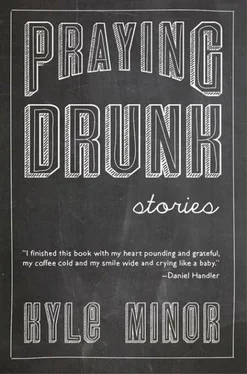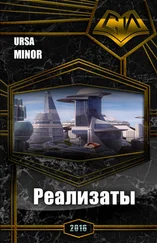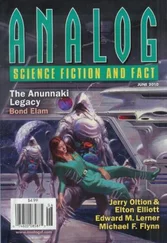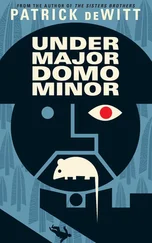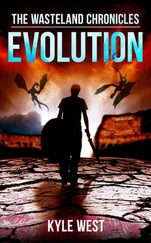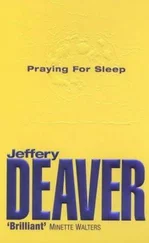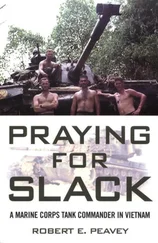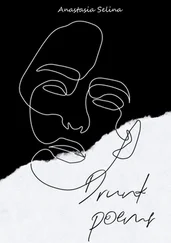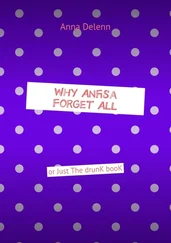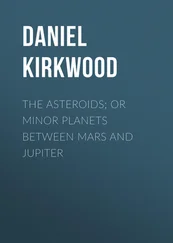I’m waiting for that. I’m waiting for all that to happen.
But that’s not what happens. What happens is I hear my name—“Minor”—and I hear it behind me, from the direction of the band room, where the Sonshine Fellowship meets to pray and sing. I turn around. It’s McKinnick, and he’s alone. And the fact of this — his aloneness — is more terrifying to me than anything I have ever seen or heard or known or imagined in my entire life.
I am deeply, deeply afraid.
McKinnick starts running, takes off at a sprint, and I turn, too, and start to run. But I am very slow. I get five steps, maybe, and he tackles me from behind.
I fall face-first on the asphalt. I catch myself with my hands, and my right hand goes through the starfruit on its way down and rips fresh wounds into my hands, and those wounds are bathed in a tiny new pool of citric acid.
McKinnick is on top of me. He mounts me from behind, starts slapping my ears. “How’s that?” he says, and slaps and slaps and slaps and slaps, gets a rhythm going. He reaches into my pants and grabs hold of my underwear with his hand and jerks the cotton into my anus, and pulls, and pulls. I am already bleeding. I can feel the warmth.
McKinnick says, “How’s that? You like that? You feel it burn? Burn, baby, burn!” He pulls my underwear up and down and from side to side.
He says, “You know what? I could ass rape you right now and no one would know. And if they found out, it’s you would be the faggot, not me. You hear me, faggot? Are you listening?”
What does it feel like? It is the most helpless feeling in the world. No one will come for me. If I try to tell on him — as I have done in the past — no one will believe me. I am at his mercy, and I am not sure he has any.
All I can do is go someplace else, to that band room, to Wednesday mornings, 6:30 am, where I am singing — where we are singing — the words of the prophet Isaiah: You shall go out with joy and be led forth with peace. The mountains and the hills shall break forth before you. There will be shouts of joy, and all the trees of the fields will clap their hands, will clap their hands .
That, and this: I will grow up to become a person who will be able to make things like this not happen to other people. And I will tell this story. This story. I will make sure everyone knows.
And here I must interrupt the thoughts of my twelve-year-old self to tell you, reader, that I did not grow up to become a person who could keep things like this from happening to other people. And until this moment, this moment I am sharing with you, I did not grow up to tell this story. I tried, a few times, and less and less as years went by, to tell this story. But no friend ever wanted to hear this story. The past, they would say, is the past. Or: That was a long time ago. Get over it . Or: Nobody likes victim stories . And, most often, they would say nothing at all. They would just be very quiet — I could tell, always, from the looks on their faces, that I had made them very uncomfortable by sharing even the opening words of this confidence. I had revealed myself to be a very, very strange and disturbed individual.
I stopped trying to tell the story. I grew up, instead, to become a preacher. Briefly a preacher. Less than two years a preacher. And while I was a preacher I was befriended by a Palm Beach Gardens city worker, a meter reader named Tony Griffin, and it is important to know that Tony Griffin was black and that he was especially sensitive to racial issues, and that I was not — trained as I was, at this school, to not believe in any kind of legacy of racism in America, to believe that any talk of race was necessarily a crutch, an excuse used by black people unwilling to work hard, to pull themselves up by their bootstraps and all that. Tony and I had a falling out over this very issue. He was part of a small group of single people in their twenties and thirties who met at my house on Thursday nights to pray and read the Bible and play video games, mostly Madden Football ’99, on my Sony PlayStation. And Tony was sure that the people in the group — all of them white but him — had turned against him because he was black. I was convinced that this charge was completely unfounded, and conceded that possibly the others were growing impatient because they disliked his habit of interrupting the PlayStation games to put kung fu movies in the VCR. So we broke off our friendship, Tony and I, over race and video games and kung fu movies. And then I quit being a preacher, decided to be a writer, lived in my car for a while.
I kept a cell phone, though, and one afternoon two years later it rang — I was near Orlando — and I saw Tony Griffin on the caller ID, and I answered and was glad to hear his voice until he said, “I’m calling because I have leukemia.” And then I was making trips to West Palm Beach every couple of months to visit him in Hospice. And then we had another falling out. I didn’t know that leukemia was a disease of the immune system, and I had a cold, and I came to visit, and I coughed as I walked through the door, and Tony threw a cup of red jello at my head and said, “Mother fuck er! You come in here with a cold! ” I left the room as fast as I could and closed the door behind me, and I heard something else hit the door, and then: “I don’t ever want to see your ass again until I’m dead and you’re standing over my wooden box.” I honored his wishes for a year, and then his niece called and said, “Come quick, he’s got two days.”
I walked into the room. He lay on the bed. His family was gathered there, waiting. He asked them to leave the room. He said, “No one will be straight with me. Am I going to die?”
I said, “I don’t know.”
He said, “Bring me a mirror.”
I did, and he looked at himself for a long time, and then he said, “You ever see those pictures of the Ethiopian babies starving in the ditches?”
He bore a striking resemblance.
He said, “You see me, don’t you?”
I nodded. I couldn’t talk. What could I do? I crawled into the bed with him. He was naked beneath the hospital gown and he had shit himself and some of the shit got on my pants. I held him for a while, and then he said, “You were right about the kung fu movies.”
And I said, “No, I wasn’t. I wasn’t right about anything.”
This was death talk we were talking.
Then he said something extraordinary. He said, “I’m still praying for a miracle. I’m still believing for a miracle.”
I did not want to tell him so I didn’t tell him what I had learned, what life had taught me, which is there’s no such thing as miracles. God doesn’t probably answer our prayers.
After we said our goodbyes I left and knew he only had another day, probably, and it was not information I was equipped to handle. I hadn’t cried since I was thirteen years old and received the last of my beatings from McKinnick. I had hardened myself so I wouldn’t cry anymore, and then I couldn’t undo it when I needed to undo it. So there I was, driving in my Chevy Corsica down Interstate 95, a little bit of Tony’s shit still on my pants, just a little black stain, the little bit I couldn’t get off with the hospital bathroom’s hand soap and sink water. I was still trying to burn into memory what it was like to hold him and feel his flesh hanging like rags from the scaffolding of his bones, and to feel like if I held him too tightly I might break those bones and that it wouldn’t take much at all. Not being able to cry made it all so much worse. The tightness in my chest was almost unbearable and I needed to somehow loosen the tightness, and even though the air conditioner was making the car uncomfortably cold, I felt a terrible heat in my chest and neck, and the veins in both temples were throbbing so hard I thought the vessels might burst. I pulled the car off on the side of the interstate, near a Jupiter neighborhood called The Heights where an ex-girlfriend still lived with her parents, their house a hundred feet or so from where I was sitting. I wanted to see her. I got out and scaled the six-foot chain-link fence separating neighborhood from interstate. My pants snagged on the fence and ripped a little, and I walked to her house and rang the doorbell. She wasn’t there, but her mother answered the door and asked what was wrong and I told her that Tony was dying, and she said she was very sad and very sorry and wished she had time to talk about it but she had to be off to a birthday party.
Читать дальше
